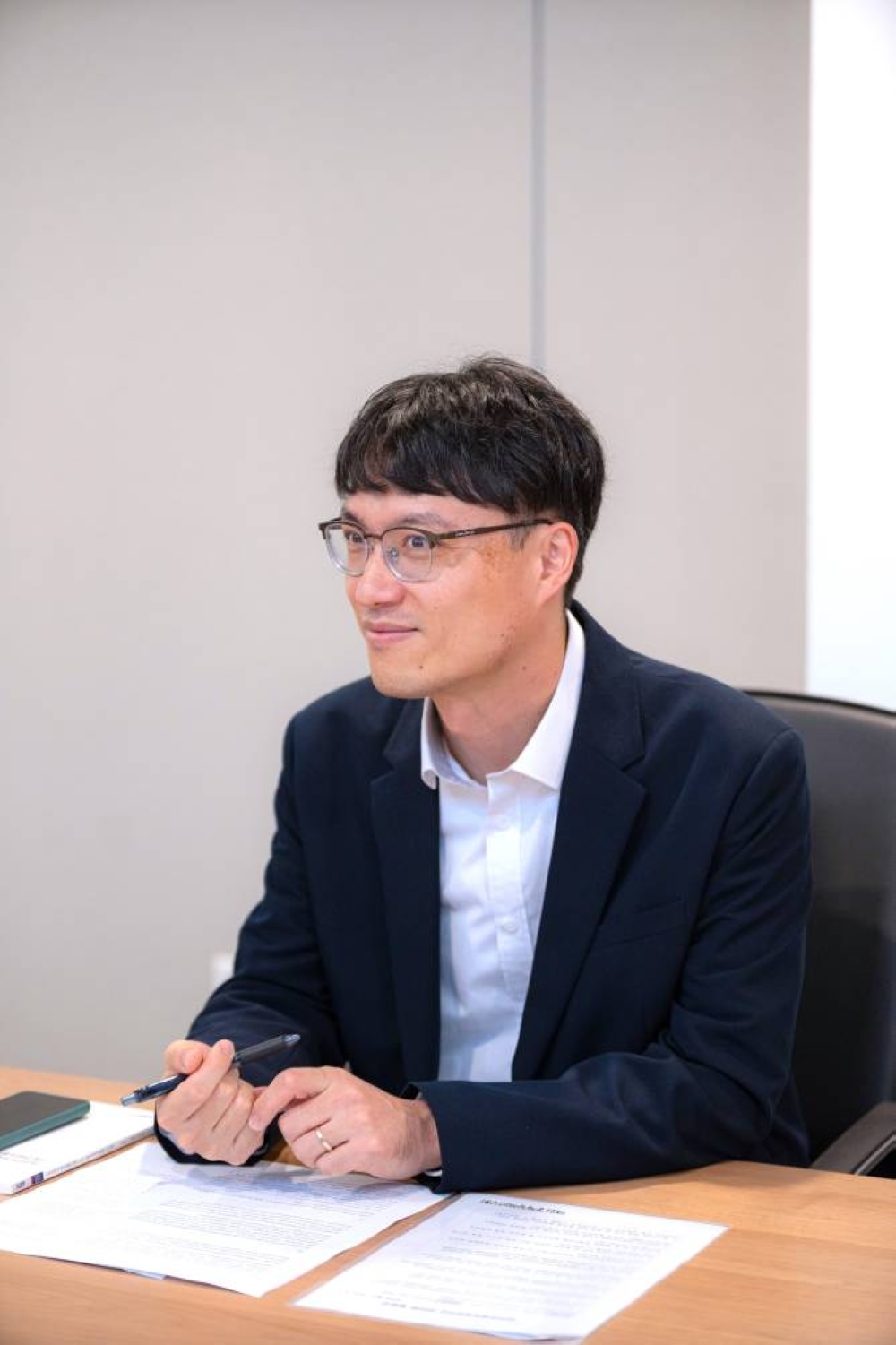Energy transition and Nationally Determined Contribution (NDC) for decarbonisation are critical areas that would help foster great collaboration and economic growth between Qatar and South Korea, a research fellow at the Korea Institute for International Economic Policy (KIEP) has said.
As one of the world’s major producers of natural gas, Qatar “has comparative advantage” to produce hydrogen, which is an emerging sector for energy transition, Kang Munsu, head, Africa & Middle East Team at KIEP, told Gulf Times in an exclusive interview at the headquarters of Korean Culture and Information Service (KOCIS) in Seoul.
At the same time, Kang said the South Korean government tried to develop the utilisation of hydrogen for cars and industries, citing pilot projects on combining agriculture and hydrogen applications. There are still many areas to study and develop for hydrogen production, he noted.
“Under these policies, energy efficiency is one of the most important areas for decarbonisation. For example, energy efficiency for buildings, manufacturing, and power generation can reduce carbon emissions. In particular, the Qatari government is interested in petrochemical plants to produce ethylene, polyethylene, and ammonia. There are potential areas to improve efficiency for the petrochemical sector,” Kang explained.
According to Kang, Carbon Capture, Utilisation, and Storage (CCUS) are emerging technologies in terms of achieving NDCs.
“Besides, renewable energy, such as solar power, is also emerging since the Qatari government is trying to diversify its power sources from fossil fuel to renewable energy,” he stressed.
Kang said a recent KIEP report underscored that South Korea and Qatar are key trade partners in terms of natural gas. Previously, South Korea-Qatar high-level conversations concluded to diversify the economic relationship between both countries. It includes energy, infrastructure, and trade, the report also stated.
“It also includes science and technology, ICT, food and agriculture, health, education, and public administration. However, trade and investment of South Korean companies are still focused on natural gas, petrochemical infrastructure, and construction, such as plant construction,” Kang pointed out.
He said: “As the Qatari government announced its 2030 national vision, we suggested cooperating on renewable energy, digital technology, food and water security, education, and health.
"These areas are what the Qatari government is interested in, as well as in other GCC countries. In my opinion, these areas are also what the South Korean private sector has the competitiveness to enter the Qatari market and neighbouring countries.”
Kang emphasised that the economic diversification strategies of the Qatari government could increase South Korea’s presence in Qatar.
“This is expected to deepen the relationship between the two countries in the future. For example, Qatar National Vision 2030 has four pillars: human development, social development, economic diversification, and environment and climate change responses. The private sector in South Korea could enter the Qatari market focusing on those pillars.
“A report by KIEP was published just last year right before the FIFA World Cup. For this reason, there are some responses from the South Korean government to understand what is going on in Qatar recently,” he said.
Kang explained that one of the main roles of KIEP is to cooperate with Qatari institutes to understand each other in terms of economic demands and policies. He said KIEP is trying to cooperate with researchers in the GCC, including Qatar.
KIEP also advises South Korea-Qatar economic cooperation areas and strategies for the South Korean government. For the South Korean government, Kang said the GCC, including Qatar, Saudi Arabia, and the UAE, is an important economic partner.
For this reason, the South Korean government is interested in working with these countries. Under this background, KIEP is expected to communicate with research institutes either face-to-face or online, he also said.
Kang said: “As a public research institute, the main role of KIEP is to study the economies of partner countries. Last year, KIEP published a research paper on Qatar titled ‘Sustainable Growth Strategy of Qatar and Implications for Cooperation’. KIEP also contributes to spreading our research results to stakeholders, such as researchers in Qatar, government officials in South Korea, and the public.
“Last year, I visited Qatar to present our research results on South Korea-Qatar cooperation at a seminar hosted by the South Korean embassy and the GCC Institute of Qatar University. This year, we plan to visit Qatar to discuss further cooperation on energy and business relations between South Korea and Qatar.”

Kang Munsu, head, Africa & Middle East Team at the Korea Institute for International Economic Policy.

